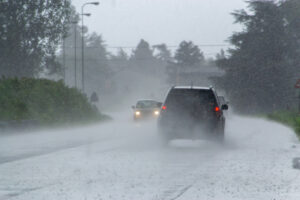
In the early 1970s, most states required regular vehicle safety inspections. This requirement arose from a law that allowed the federal government to withhold highway funding from states that failed to implement safety laws. Georgia is one of the states that eventually repealed its law after the federal government relaxed its rules.
Without these regular safety inspections, the risk of equipment-related car accidents in Atlanta, GA, increases. After a vehicle malfunction causes a crash, an Atlanta car accident lawyer from Hammers Car Accident & Personal Injury Lawyers can help you with your personal injury claim. Our Atlanta car accident lawyers have 50 years of combined experience and have recovered tens of millions of dollars in compensation.
We’re ready to assist you in getting compensation in all our car accident-related practice areas, like drunk driving, distracted driving, head-on crashes, intersection crashes, speeding accidents, uninsured motorist claims, rollover, hit & run, and more. Call our law office today at (770) 900-9000 to schedule a free consultation.
How Hammers Law Firm Can Help After An Equipment-Failure Car Accident In Atlanta, GA

After you have suffered an injury in a car accident caused by someone else’s acts or omissions, our Atlanta personal injury lawyers will provide the following legal services:
- Evaluating your legal claims and advising you about your options
- Building your case by collecting records and other evidence
- Pursuing a claim with the at-fault party’s insurer and attempting to resolve it
- Filing suit against the at-fault party if settlement negotiations fail
An equipment-related collision in Atlanta, Georgia, can result in disabling injuries that cause substantial financial costs and losses. Contact Hammers Car Accident & Personal Injury Lawyers to schedule a free consultation with an Atlanta car accident attorney to learn about your options for financial compensation for your injury-related wage losses and expenses.
Car Inspection Requirements In Georgia
Without regular car inspections, the Georgia Department of Transportation (GDOT) cannot prevent defective or damaged vehicles from driving on the state’s roads and highways. Instead, the burden of identifying and stopping dangerous vehicles falls on police officers.
Specifically, Georgia law prohibits vehicles with equipment problems from using state roads:
- Vehicles in an unsafe condition, endangering others
- Vehicles that lack the required parts
- Vehicles that have prohibited parts
An example of the first defect is a vehicle with a visibly broken door latch that prevents the door from closing completely. The second defect includes vehicles with broken or missing headlights, tail lights, and turn signals. The third defect covers vehicles with reflective window coatings.
The law allows police to stop vehicles that have any of those equipment violations and conduct a spot inspection. Importantly, officers do not need a warrant to stop a defective or damaged vehicle and inspect it. A violation can result in a misdemeanor citation. However, if you repair the vehicle to comply with Georgia law, the court may dismiss the citation or reduce the fine.
Common Causes Of Equipment-Related Crashes
GDOT provides state accident statistics through its crash data portal. According to this portal, Georgia had over 367,000 traffic accidents in 2024, many of which were caused by equipment-related issues.
The following fault equipment can cause accidents:
- Brake failure
- Tire rupture
- Worn tires
- Steering defect
- Burned-out or broken lights
When a vehicle suffers from these issues, the driver may lose control despite doing everything right. Alternatively, other drivers might not be able to see the vehicle or understand what the driver intends to do.
Liability For Equipment-Failure Car Accidents
Liability for crashes is typically determined using negligence principles. A party acts negligently when it fails to exercise reasonable care under the circumstances. Using this legal standard, the liability for equipment-related accidents may fall on the following parties:
Vehicle Owner Or Driver
An owner or driver who knows their vehicle is broken may be liable if the defect causes a crash. For example, suppose a driver hears a grinding sound from their brakes and feels a spongy brake pedal. The driver may be liable if they continue to drive the vehicle and cause a rear-end collision.
Repair Shop
Repair shops may be liable when they perform repairs negligently. Specifically, they must provide reasonably competent and knowledgeable services. When they fail to do so, they may be at fault for the resulting crash. Thus, a repair shop that fails to properly torque a vehicle’s lug nuts may be liable if the wheel falls off, causing a multi-vehicle collision.
Vehicle Or Part Manufacturer
A vehicle or vehicle part manufacturer is strictly liable for crashes resulting from product defects. Strict liability means the manufacturer bears the liability for any injuries simply upon proof that the vehicle or auto part was defective when it left their factory.
Contact Our Car Crash Lawyer in Atlanta For A Free Consultation
Equipment failures can result in serious or even fatal car accidents. If you have been in an accident, our Atlanta car accident attorneys are here to help. We have 50 years of combined experience and have recovered tens of millions of dollars for our clients. Contact Hammers Car Accident & Personal Injury Lawyers today for a free consultation.
